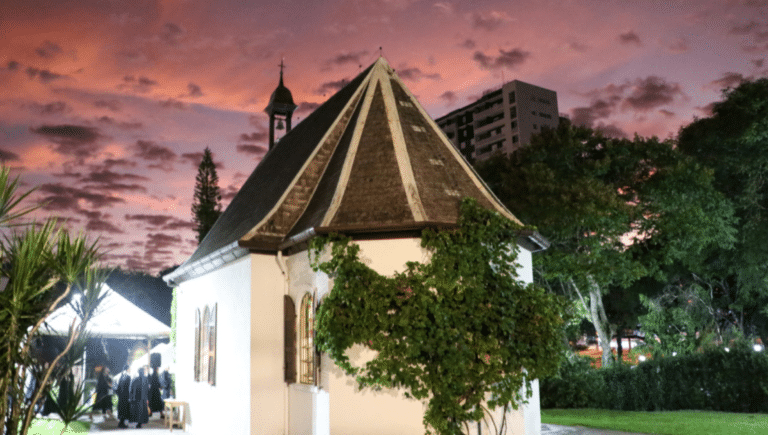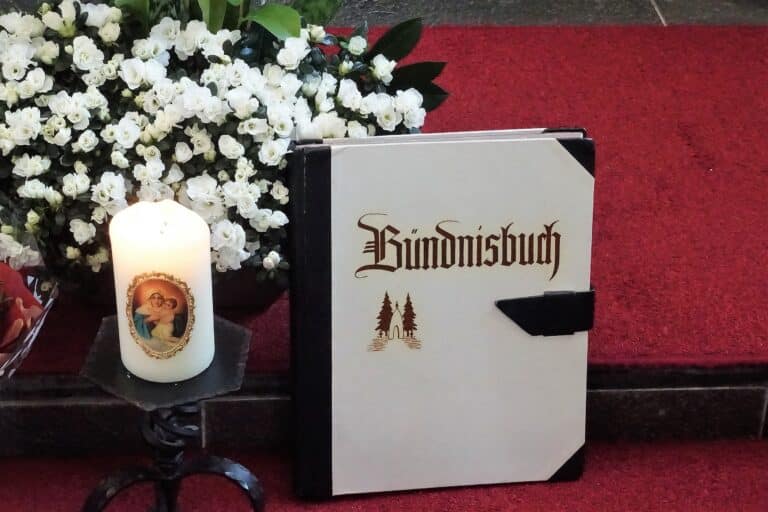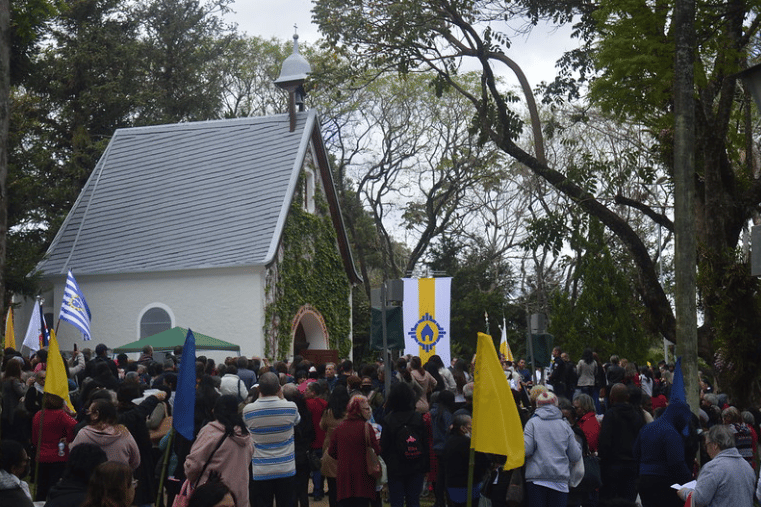In the Schoenstatt Shrine in Alangasí, Quito, we had a very special Mass, in the midst of the different indigenous cultures in our inter-Andean highlands. The ideal of the Shrine is “Consecrated Family, fire from the middle of the world“.
The Mass in the Shrine began at 6:00 p.m. amidst a light rain. Mary arrives at the door, mounted on a donkey, accompanied by St. Joseph, both dressed in costumes from one of the regions of the Ecuadorian highlands. The choir sings “Ya viene el Niñito“, an indigenous song, while the parishioners applaud joyfully.
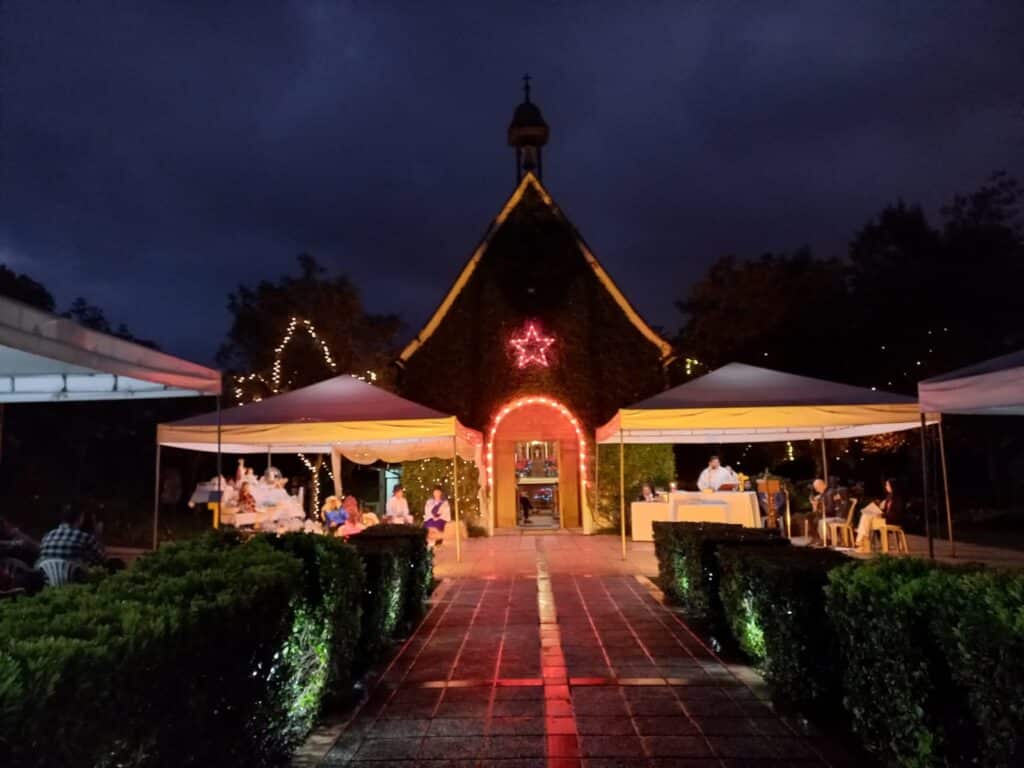
The arrival was announced with the proclamation of Father Joseph Kentenich’s verses “Your Shrine is Our Bethlehem”.
“Culture of Encounter is Covenant culture that creates solidarity” Pope Francis
St. Joseph and the Blessed Mother remained inside the Shrine until the singing of the Glory Be during the Mass; a moment of indescribable joy in which the Virgin Mary exits the Shrine with the Child in her arms, hands him over to the priest and he solemnly presents him to the community of faithful present.
Surprisingly, it stopped raining, and the sky cleared up so that the Child could be carried around the place while “Glory to God in the highest” was intoned. The couples of the Family Branch of Valle de los Chillos, including the pilgrims, represented the Andean ethnic groups of Ecuador during the Christmas Eve Eucharist.
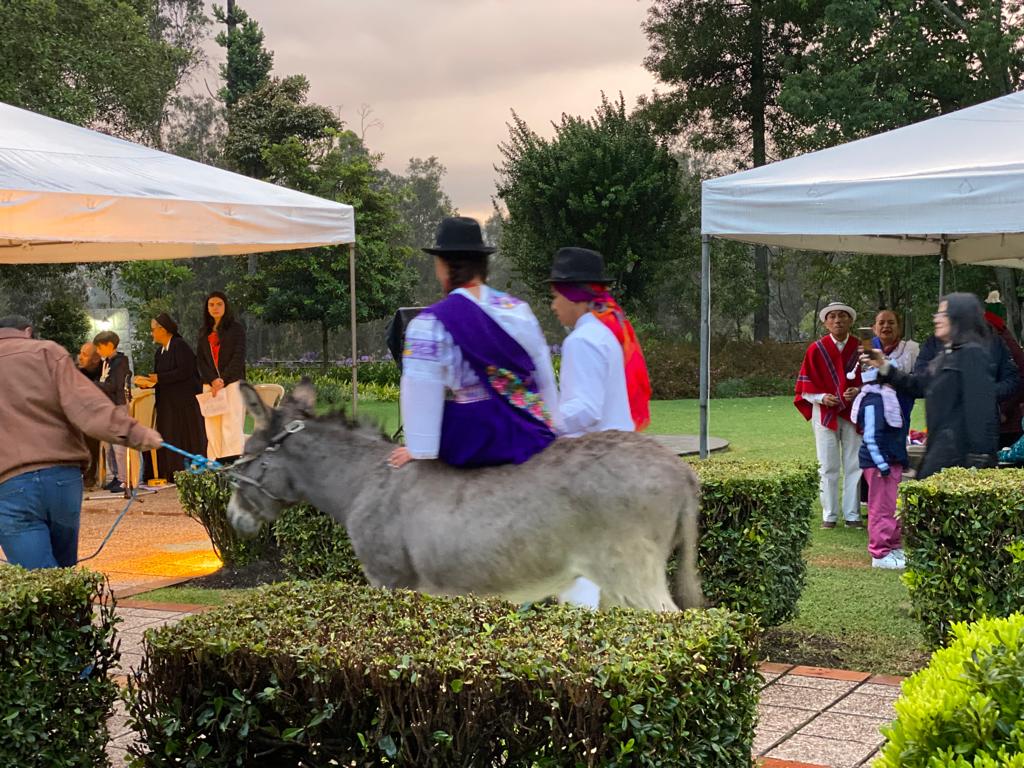
Associating the gospel to local culture
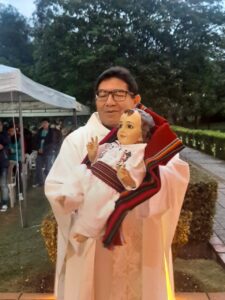
Father Eduardo Auza, who celebrated the Holy Mass, associated the cultural values of the different ethnic groups with the exquisite richness of the Gospel and the love of God, made man, in the different cultures.
He pointed out: “This speaks to us of inculturation, which is defined as a process of integration of one culture into another; and this is what happened on Christmas Eve, on Christmas Day. God wanted to enculturate himself, to bring his culture of love, his divine culture and merge with us. Jesus Christ, Son of the Father, of the eternal God, becomes one of us, He is a God who is with us, and this is the great cause of our joy, of our hope”.
It is a matter of loving, thinking and living organically
And he continued: “It is a process of inculturation of the divine with the human, of majesty with poverty, of mercy with the miserable. After two thousand years we still face the challenge: to make the culture of the Baby of Bethlehem emerge victorious in the face of a culture that discards so much. Father Kentenich would tell us that it is about a new way of loving, thinking and living organically. This is the inculturation that Ecuador has received, the culture of the Gospel, the good news of which the angel spoke to the shepherds.
The cultures of the ethnic groups have evangelical values
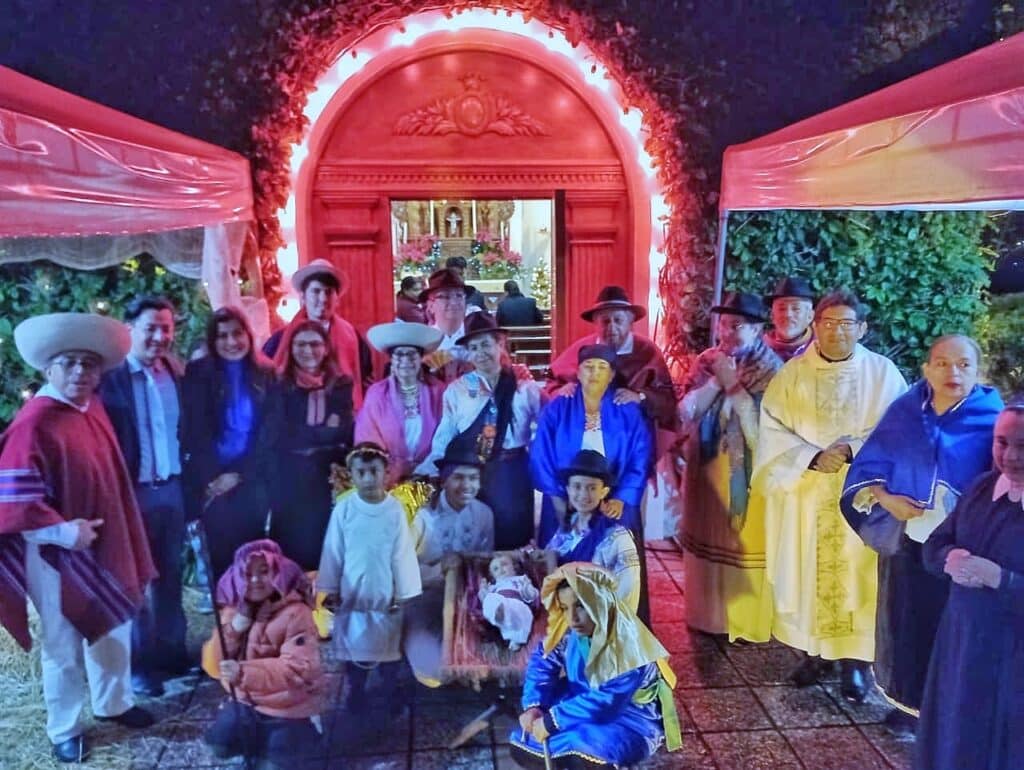
The cultures of the ethnic groups that are represented here have evangelical values, such as a strong sense of community, their arts and crafts, their medicines, their traditions, etc. Let us have the audacity to choose the culture of the Gospel and of Christmas Eve, the culture of love. Grant us ears to listen to you, curiosity to seek you, an attentive heart to contemplate you, an attitude to proclaim you, audacity to speak about you, piety to pray to you, humility to serve you, heroism to love you, generosity to share you, gratitude to worship you… Basically “putting on Christ’s poncho, which means to be dressed as a new man”, he concluded.
The music ministry selected songs and carols of indigenous origin, according to the occasion with an outpouring of excitement and solemnity at the same time.
Five ethnic groups of the Ecuadorian territory bring their offerings
The offerings were presented by the different ethnic groups: wheat husks, hosts and paten, from the Cayambe ethnic group; grapes, wine and chalice, from the Cayambe ethnic group; fruits of our highlands from the Chibuleo ethnic group; candles and incense from the Saraguro ethnic group; flowers from the Natabuela ethnic group.
Adoration of the Child
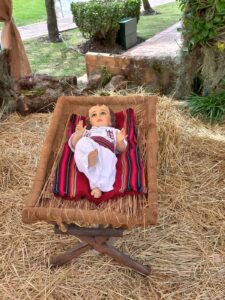
A beautiful scene could be witnessed with the various Infant Jesus placed on a shelf next to the living manger! More than 100 images of the Child Jesus were placed, ancient, modern, from the Quito school of Caspicara, all beautifully dressed.
After communion, the image of the Baby Jesus was placed in front of the Shrine and there was a moment of adoration. It was a solemn moment of recollection and deep reflection on the mystery of God made man among humankind.
Fire in the middle of the world
We thus had the gift of a Christmas Eve celebration that was very moving, joyful and full of hope. At the end there was an atmosphere of great family cheerfulness. Everyone wanted to take pictures with the living nativity scene, and they entered the Shrine to receive the graces of Christmas.
Finally, Father Eduardo prayed so that God and the Blessed Mother would guide our way toward the culture of the Baby Jesus.
On January 20, our Shrine will celebrate its 30th anniversary with its ideal: “Fire in the middle of the world” and we want to continue to enkindle this fire.

